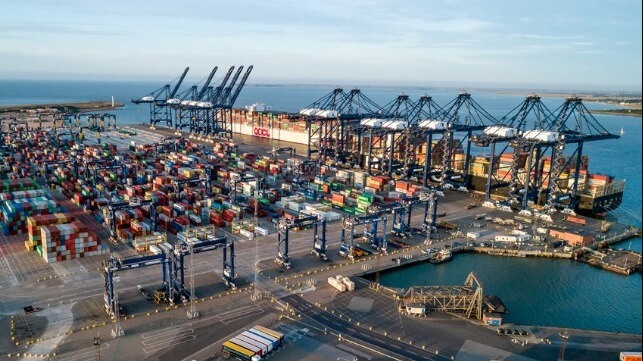Accusing Carriers of Profiteering, BIFA Calls for UK Government Review

The British International Freight Association has become the latest trade association to call for a government investigation into the business practices of the global shipping lines and the state of competition in the industry. Citing complaints of “dreadful service levels, and hugely inflated rates” the association accuses the ocean carriers of profiteering with little regard to the needs of their customers.
In a letter to Robert Courts MP, Parliamentary Under Secretary of State at the Department for Transport, BIFA's Director General Robert Keen expresses the trade association’s concern that during a period of well-documented chaos within the container shipping sector, commercial power is becoming increasingly concentrated, resulting in diminished market choice and competition, and distorted market conditions.
“BIFA members fully accept that a free market economy is open to all, but are increasingly concerned that the activities of the container shipping lines, and the exemptions from legislation from which they benefit, are distorting the operations of that market to the shipping lines’ advantage, whilst adversely and unfairly affecting their customers, especially freight forwarders and SME businesses,” writes Keen. “Drewry recently issued a profit forecast of more than $150 billion for 2021 for the main container shipping lines. To put that into perspective, this is more than has been achieved in the previous 20 years combined, and many BIFA members consider it to be a case of blatant profiteering.”
BIFA points to the consolidation in the shipping industry as well as the growth of the three dominant alliances between the lines. “In 2015, there were 27 major container shipping lines carrying global containerized trade, with the largest having a 15.3 percent market share. Today, there are 15 shipping lines, organized into three major alliances carrying that trade, with some analysts observing that the market share of a single alliance on certain key routes could be over 40 percent.”
The association does not single out any carriers but instead focuses on the overall industry. The port of Felixstowe, which is Britain’s largest container port, like many of the world’s ports suffered from extended backlogs and congestion in 2021. During the summer, executives from Maersk confirmed in media interviews that the shipping giant had begun skipping the U.K. port diverting some of its larger containerships to the continent due to the backlogs. Maersk reported that it was using feeder vessels to deliver containers into the U.K. port to avoid congestion and maintain better schedule integrity on its primary liner routes.
In mid-December, the 2M Alliance, announced plans to rationalize its schedules to better manage challenges at the terminals in Felixstowe. They said that going forward they would be replacing a call at the U.K. port with increased time in Rotterdam while combining service from two routes into a single call at Felixstowe. Port officials at Felixstowe responded saying they welcome the change as a means to provide a faster, more efficient, and more reliable service for shippers citing that volumes at the port were up 10 percent year-over-year.
BIFA highlighted that it is joining a growing number of organizations, including its European counterparts CLECAT and FIATA, as well as the U.S. Federal Maritime Commission, and the Australian Productivity Commission, in calling for governments and regulators to give careful consideration to the evolving business arrangements in the container shipping market to see whether they are in breach of competition law.
